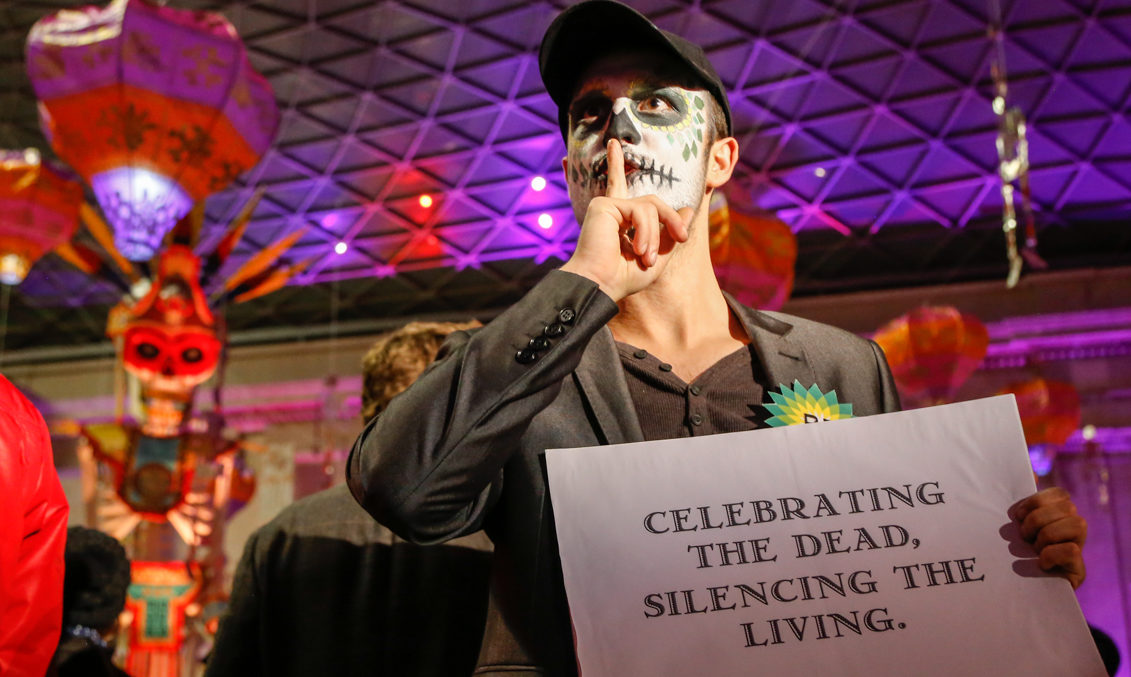It’s no coincidence that BP – a company behind a record-breaking oil spill that continues to drill for new fossil fuels – sponsors a range of iconic cultural institutions that provide a cost-effective way of cleaning up its image.
By 2012, BP had carefully coordinated its UK sponsorship deals so that they ran in parallel. This meant that for the following five years, Tate, the British Museum, the Royal Opera House and the National Portrait Gallery would all be displaying BP logos on everything from blockbuster exhibitions about submerged cities to open air screenings of operas.
But behind the logos, there was more to these sponsorship deals than just some well-placed branding. A damning report put together in 2016 by Art Not Oil unearthed emails and documents which revealed how BP’s sponsorship was having a ‘corrupting influence’ over those institutions it was sponsoring.
At the British Museum, BP was using its sponsorship of exhibitions as a platform to meet strategically important policy-makers. As BP was attempting to drill in the Great Australian Bight, it sponsored the museum’s Indigenous Australia exhibition and attended meetings at the Australian High Commission. As BP prepared to bid on drilling licenses off the coast of Mexico, it sponsored a Mexico-themed festival where staff from BP enjoyed a VIP reception with the Mexican ambassador and government ministers.
BP’s Vice President later admitted that:
‘When there is an option, naturally we are going to try to match a particular exhibition with somewhere we have an interest.’
It was when BP’s sponsorship of the arts came under scrutiny from campaigners and artists that the company’s ‘corrupting influence’ became more concerning. BP hosted a meeting at its London headquarters where Heads of Security and corporate partnership managers from each of the sponsored institutions attended. On the agenda for that meeting was ‘suggested measures’ for how they should deal with activists.
And when the PCS Union – which represents many museum and gallery workers – voted to support the campaign against oil sponsorship, BP quickly contacted the cultural institutions it sponsors, asking:
‘Would be good to understand if there is an affiliation to this organisation within each of your respective establishments.’
A member of staff at the National Portrait Gallery replied:
‘Thanks for alerting me to this. I believe the PCS Union does represent some gallery employees… I have shared this information with a wider group of colleagues so that we can be prepared and ready for any potential impacts.’
To find out more, you can read the full report here.
